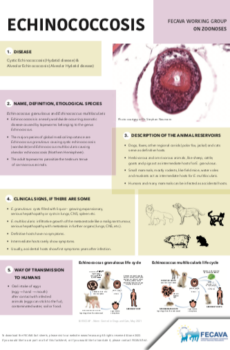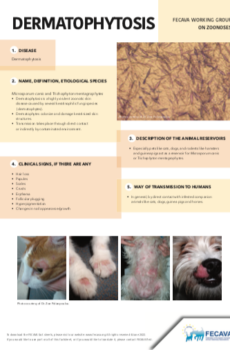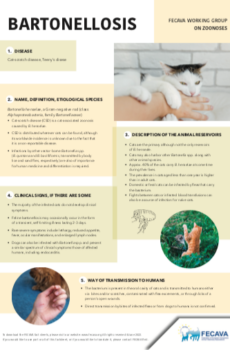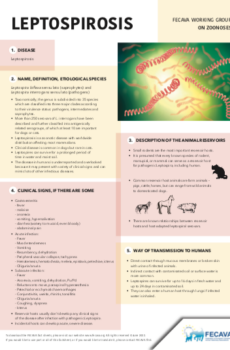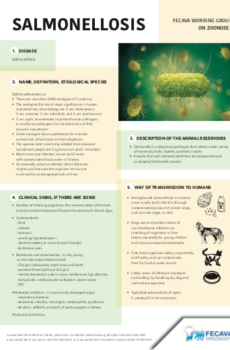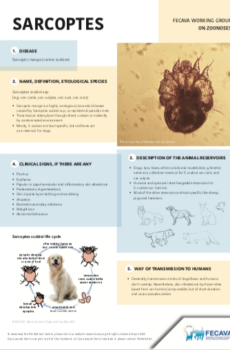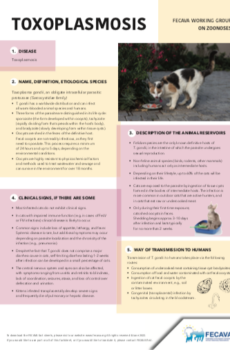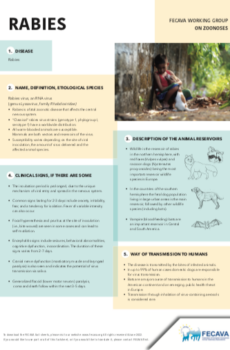Dear colleagues,
We veterinarians should also protect the health of people. Therefore, diseases transmitted reciprocally from animal to human or human to an animal are important to us. This is especially true since human physicians are not always completely familiar with such “zoonoses”. The field of “zoonoses” also gains special importance due to an increasingly dynamic of diseases due to climate change and globalization. Suddenly, one finds southern diseases in the “North” that historically played no role. More so, some of these diseases became and are becoming autochthonous, conquering new endemic areas independent of travel activities.
Reason enough to pay attention to these zoonotic diseases. FECAVA has done this. We have writtenfact sheets for the main zoonotic diseases transmitted from small animals to humans. In doing so, it was of particular importance to us how the diseases could be recognized in the animal and the mode of transmission. Thus, the fact sheets not only become essential for us veterinarians but can also provide valuable help in human medicine.
I hope you enjoy reading this issue of the FECAVA Newsletter.
Dr. Stephan Neumann
FECAVA Treasurer, Chair of the FECAVA Working group on Zoonoses

